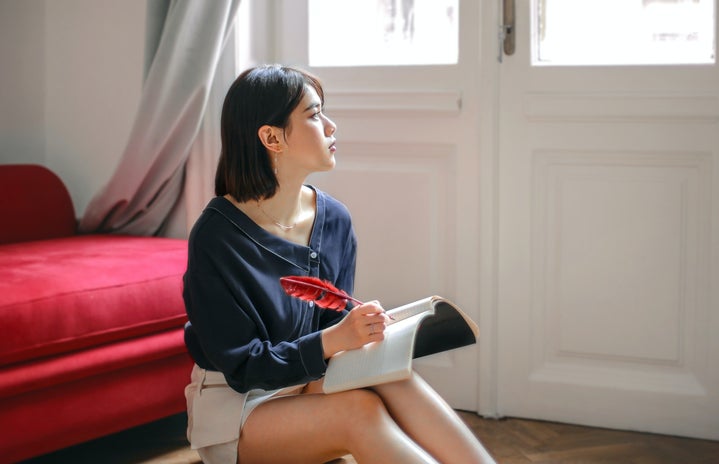For a writing and English student, I’m surprisingly terrible at journaling. Whenever I used to try, I would freeze up. I didn’t know what to talk about, and I’d worry about someone finding it and judging me. Not to mention the fact that my big important feelings always sounded so stupid when I recorded them.
I got into journaling more regularly at the start of 2020, and let me tell you, that journal is a wild ride. Still, it’s nice to have a record of the year, especially since so much of it felt like one long blur. Here are some suggestions on how to start journaling this year!
- Make it part of your routine.
-
I only journal regularly when it’s part of my daily routine. Otherwise, I put it off or forget about it. I’d suggest doing it at night because that allows you to decompress, but mornings might be nice, too.
- Summarize your day.
-
If you struggle with finding something to write about, try giving a quick summary of your day. For example, “This morning I slept in. I made eggs for breakfast and worked on a paper for my Shakespeare class. I watched The Queen’s Gambit in the afternoon and then went for a walk.” And so on and so forth. Doing this gives you time to process and record your day.
- Follow your train of thought.
-
If you lose interest in writing about your day, move on! If thinking about The Queen’s Gambit interests you more than writing about what you had for dinner, write about that instead! Your journal is for you. Write down whatever comes to you.
- Allow yourself to say whatever you want.
-
My journal is embarrassing. I’ll be the first to admit it. Most entries read like they were written by an angsty 13-year-old. Even though these feelings are embarrassing to me retrospectively, though, they’re important to feel in the moment. For a long time, I didn’t journal because I didn’t want to record myself feeling things. Journaling is a way to stop trying to shame myself for being a person.
- Write poetry or doodle.
-
There are no rules. You can express yourself in drawings or poetry rather than prose. Don’t try to make them good, either. Journaling is for the present you, and no one else.
Journaling is a way to be creative that is low-pressure and private. I hope these suggestions inspire you to give it a try this year. Happy journaling!



